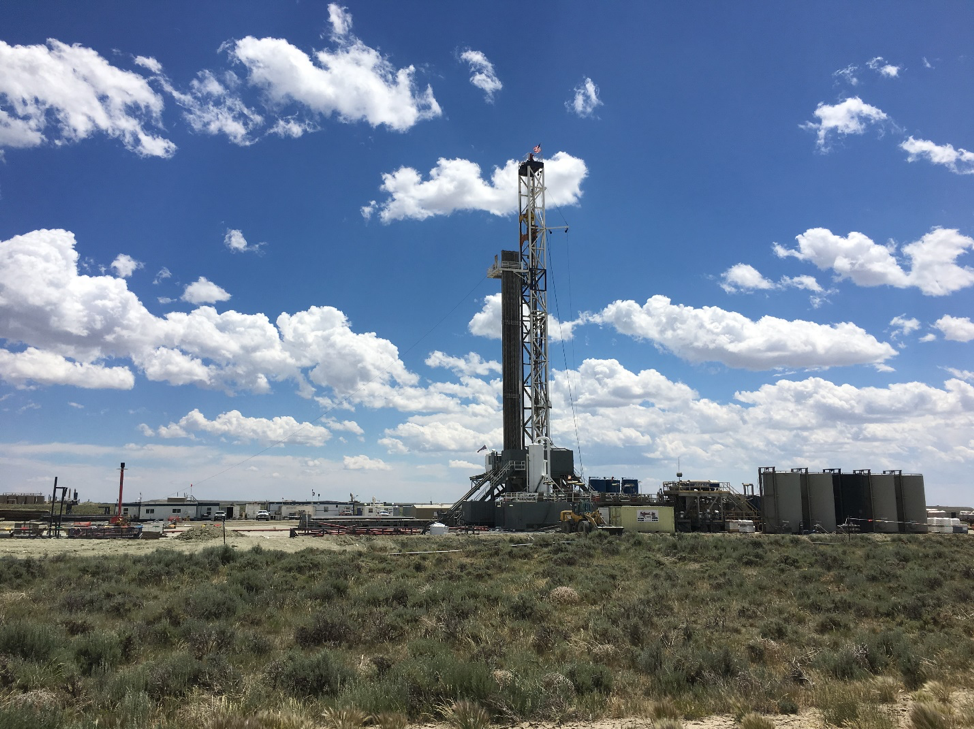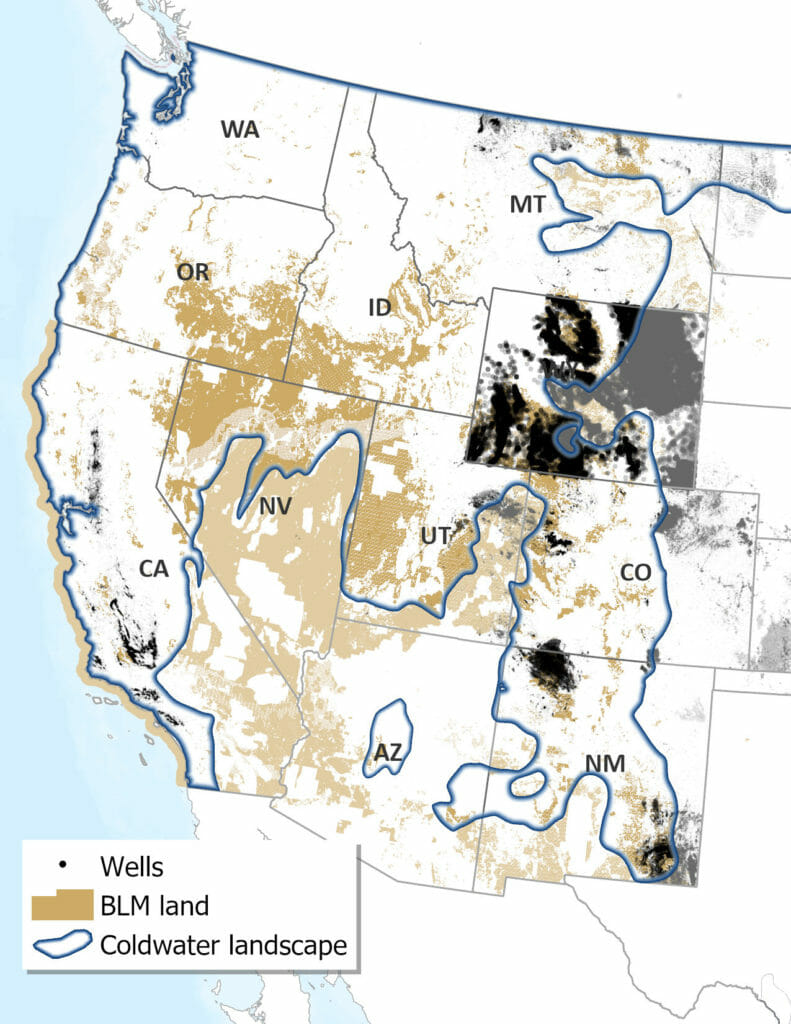Bill would discourage speculative leasing on public lands and bring balance back to public land management.
By Tasha Sorensen

Trout Unlimited expressed its support Friday as Senator Cortez Masto (D-NV) introduced the End Speculative Oil and Gas Leasing Act of 2020.
The bill would improve the current oil and gas leasing system by taking into consideration the potential of oil and gas production before public lands are leased.
“The current oil and gas leasing system is hurting high value fish and wildlife habitat, wasting taxpayer money, and in many places, damaging the outdoor recreation economy,” said Steve Kandell, Director of Trout Unlimited’s Sportsmen’s Conservation Project.
The current oil and gas leasing system is hurting high-value fish and wildlife habitat, wasting taxpayer money, and in many places, damaging the outdoor recreation economy.
Steve kandell, director of trout unlimited’s sportsmen’s conservation project
What needs improved with the current oil and gas leasing system and what are low potential lands?
The current leasing system permits anonymous, speculative leasing of public lands without regard for the potential to actually produce oil and gas. This practice has little potential to benefit the public but creates significant, unnecessary land management conflicts with fish, wildlife and other resources by tying up those lands with a right to explore for oil and gas. Moreover, state and federal agencies are burdened with having to review dubious proposals, diverting limited resources that otherwise would be devoted to other multiple uses, such as managing fish and wildlife habitat. Reforming this antiquated approach to public oil and gas leasing is long past due.
Why?
The End Speculative Leasing Act of 2020 would require consideration of oil and gas potential before leasing. This will provide for better management of public lands for recreation, wildlife, and multiple other uses that benefit all Americans by taking lands off the table for lease nominations in low and no potential areas.

Leases in low potential areas generate nominal revenue and carry significant costs borne by the public. They’re cheap and easy to acquire, but because of their low potential, it is questionable whether development will actually produce oil or gas and generate royalties for taxpayers. And yet, leasing lands with low development potential can supersede other uses of those lands, like recreation, fish and wildlife conservation. This is because once public lands are leased, they are encumbered with a right to development, while the public has no equivalent right for conservation or recreation. This creates unnecessary public conflict and limits options for managing public lands for other multiple uses[1] now and for the future. When push comes to shove, fish and wildlife and hunters and anglers get the short end of the stick.
Importantly, the bill would not affect the leasing and development of medium and high potential lands, allowing development to proceed where there is the best chance for actually producing energy resources and providing a fair return to the American taxpayer.
Why this Matters for Trout Unlimited
The nation’s public lands system provides Americans with the some of the world’s richest opportunities for outdoor recreation. In fact, each year outdoor recreation generates$887 billion in consumer spending and 7.6 million jobs. Not only do they offer world-class angling opportunities, but public lands comprise more than 73 percent of the available habitat for native trout in the West, representing the vast majority of remaining strongholds for coldwater species. These areas serve as strongholds for native trout and are now being threatened by leasing in low potential lands. This is occurring in over half (50%) of the remaining native trout watersheds on public lands classified as low potential. Since 2017, of the almost 7 million acres of public lands offered for lease 4.4 million acres have been offered in low potential areas with 60% of it being sold.
The intact landscapes we have left are needed to maintain drinking water for communities, meet water demands for agriculture and downstream users, provide ample habitats and seasonal ranges for fish and wildlife to thrive and to protect the integrity of cultural, historical, designated and scenic areas.
The End Speculative Oil and Gas Leasing Act of 2020 offers a way to advance responsible energy development on public lands while also ensuring speculators aren’t abusing the current federal onshore oil and gas leasing system.
How you can help
TU’s policy is to encourage energy development in a way that meets the needs of people while eliminating, minimizing, or mitigating the impacts to coldwater fisheries and their watersheds. TU works to ensure that energy projects are designed, sited, constructed, operated, and decommissioned in a manner that conserves coldwater fisheries and their watersheds.
A thoughtful lease process supports this policy by encouraging balanced land management and preventing undo risk to fish and wildlife habitat, including sensitive coldwater fisheries. We are working on solutions to ensure it’s done right, and we have developed a web application tool used to identify threats to coldwater fisheries in areas we don’t want to see jeopardized by industrialized developments. Take a look at these maps and locate your favorite fishery and then visit Standup.tu.org to take action and learn more.
Please contact Kate Miller, Corey Fisher or Tasha Sorensen with any questions.
[1] The Federal Lands Management and Policy Act defines multiple use to include “recreation, range, timber, minerals, watershed, wildlife and fish, and natural scenic, scientific and historical values” (Title I, Sec. 103(c).


